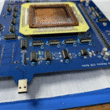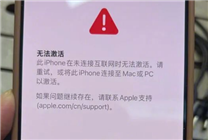Japanese Government Calls for Copyright Protections in AI-Generated Content
Summary:
- The Japanese government highlights the significance of the animation and comic industries in Japan’s economy.
- Concerns arise over copyright infringement by OpenAI’s Sora 2 model, which generates content similar to traditional Japanese arts.
- Minoru Shirouchi emphasizes the need for measures to protect intellectual property rights.
The cultural and creative sectors in Japan have solidified their status as vital contributors to the nation’s economy, with Japanese animation and comics gaining substantial global influence. To further underscore this importance, recent actions by the Japanese government reflect a commitment to protect these artistic treasures amidst advancements in artificial intelligence (AI).
The Rise of AI in Creative Industries
The launch of OpenAI’s innovative Sora 2 video and audio generation model has stirred significant debate due to its ability to produce content reminiscent of Japanese animation styles. The Sora 2 model showcases numerous examples that resemble traditional anime aesthetics, prompting a reevaluation of copyright laws related to AI-generated works.
Government Response and Intellectual Property Concerns
In response to these developments, Minoru Shirouchi, Japan’s Minister in Charge of Intellectual Property and AI Strategy, held a press conference to address concerns regarding potential copyright infringements. During this briefing, held on October 10, he announced that the Cabinet Office’s Intellectual Property Strategy Headquarters had formally requested OpenAI to refrain from any copyright violations through the use of the Sora 2 model.
Shirouchi underlined the cultural significance of animation and comics, labeling them as “priceless treasures.” He expressed a strong commitment from the Japanese government to take necessary actions to protect these creative domains against unauthorized reproductions. As the line between human creativity and machine-generated content blurs, the necessity for robust intellectual property protections has never been more crucial.
The Complexity of Copyright in the Digital Age
The advent of AI technologies challenges traditional notions of creativity and copyright. As AI systems like Sora 2 generate visually engaging and culturally resonant content, they inadvertently raise questions about ownership and originality. This complexity necessitates a comprehensive dialogue between technology developers, artists, and policymakers.
The Japanese government’s proactive stance emphasizes the importance of creating frameworks that safeguard the rights of artists while fostering innovation in AI. Protecting intellectual property in this new landscape is essential not only for creators but also for the future of the cultural economy in Japan.
Global Implications and the Future of AI Technology
The implications of this issue extend beyond Japan. As various countries navigate the integration of AI into their creative sectors, the responses and frameworks established here may serve as a precedent for others. Balancing innovation with copyright protections will require international cooperation and a rethinking of existing legal structures.
As AI continues to evolve, collaboration among artists, technologists, and regulators will be essential. By embracing a forward-thinking approach, stakeholders can develop solutions that encourage creativity, respect intellectual property, and drive economic growth.
Conclusion
The ongoing dialogue surrounding copyright and AI-generated content reflects the broader challenges faced by the creative industries in a rapidly evolving technological landscape. The Japanese government’s actions illustrate a commitment to protecting national cultural assets while recognizing the potential benefits of AI advancements. As the world watches closely, the decisions made today will shape the future of creativity and innovation for generations to come.
This editorial touches upon crucial themes related to the intersection of technology and creativity, encouraging a proactive approach to safeguarding intellectual property while embracing advancements in AI.










